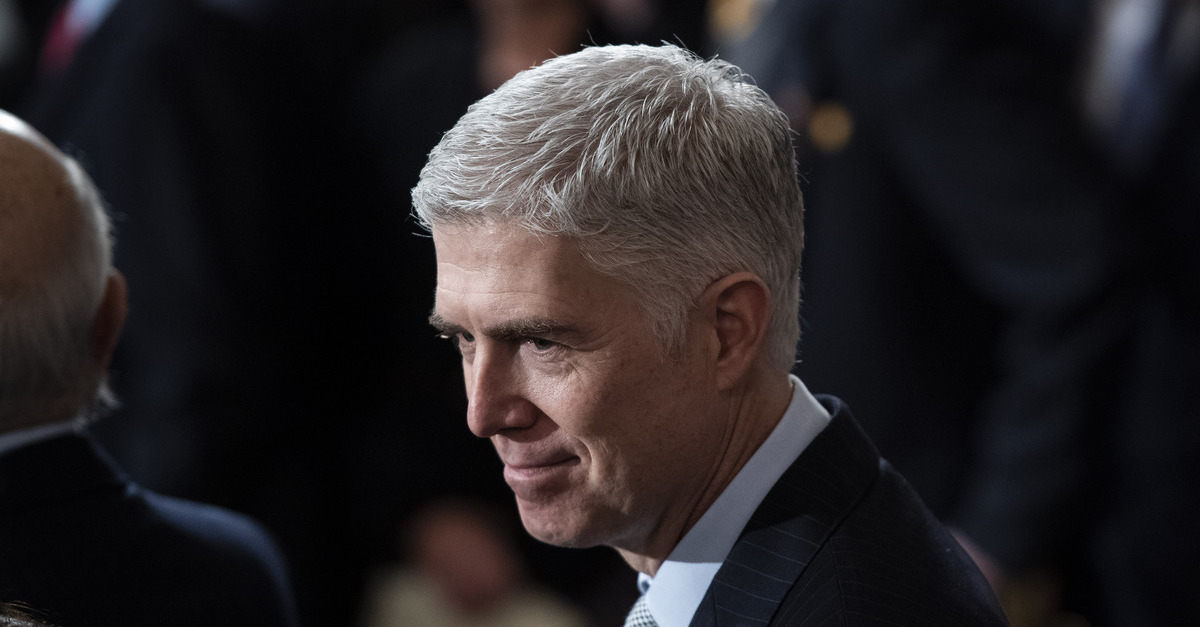
A federal appellate court on Wednesday ruled that public schools cannot prohibit transgender students from using the bathroom that corresponds to their gender identity. The 2-1 decision, issued by the U.S. Court of Appeals for the Fourth Circuit, cited to Supreme Court Justice Neil Gorsuch’s landmark opinion in Bostock v. Clayton County, reasoning that such policies violated federal sex discrimination laws and the U.S. Constitution.
The controversy stems from a lawsuit filed in 2015 by Gavin Grimm against the Gloucester County School Board after his public high school refused to let him use the mens’ bathroom. The school, which required Grimm and other transgender students to use an “alternate private” restroom, claimed the rule was necessary to protect the privacy of the student body.
“For the last five years, Gavin has been fighting for transgender students to ensure no one else deals with the discrimination he faced in high school. The court rightfully stood with him to rule that trans students deserve to go to school with dignity, respect, and equal protection under the law,” said Eden Heilman, legal director for the ACLU of Virginia, which represented Grimm in the matter.
In a 60-page opinion from Circuit Judge Henry Franklin Floyd, a Barack Obama appointee, the court upheld a lower court’s 2019 ruling that the school was in violation of Title IX, which prohibits sex discrimination in education institutions that accept federal funding.
In Bostock, the court stated that it was “impossible” to discriminate against a transgender individual without taking that person’s sex into account, a rationale mirrored by Wednesday’s Fourth Circuit’s opinion.
“After the Supreme Court’s recent decision in Bostock v. Clayton County, we have little difficulty holding that a bathroom policy precluding Grimm from using the boys restrooms discriminated against him ‘on the basis of sex,’” Floyd wrote. “Although Bostock interprets Title VII of the Civil Rights Act of 1964, it guides our evaluation of claims under Title IX. That is because the discriminator is necessarily referring to the individual’s sex to determine incongruence between sex and gender, making sex a but-for cause for the discriminator’s actions. As explained above in the equal protection discussion, the Board could not exclude Grimm from the boys bathrooms without referencing his ‘biological gender’ under the policy, which it has defined as the sex marker on his birth certificate.”
The court also said that the school’s restrictions were put in place due to ignorance of the medical community’s understanding of the nature of being transgender and due to pressure not from students, but from adults. Floyd closed his opinion with an auspicious nod to the role of courts in protecting a generation of student from systemic bigotry.
“The proudest moments of the federal judiciary have been when we affirm the burgeoning values of our bright youth, rather than preserve the prejudices of the past,” he wrote. “”How shallow a promise of equal protection that would not protect Grimm from the fantastical fears and unfounded prejudices of his adult community.”
In a statement, Grimm said the decision was a victory for the entire transgender community.
“All transgender students should have what I was denied: the opportunity to be seen for who we are by our schools and our government. Today’s decision is an incredible affirmation for not just me, but for trans youth around the country,” he said.
The decision can still be appealed to the U.S. Supreme Court.
Read the full decision below:
4th Circuit Gavin Grimm by Law&Crime on Scribd
[image via Jabin Botsford – Pool/Getty Images]
Have a tip we should know? [email protected]